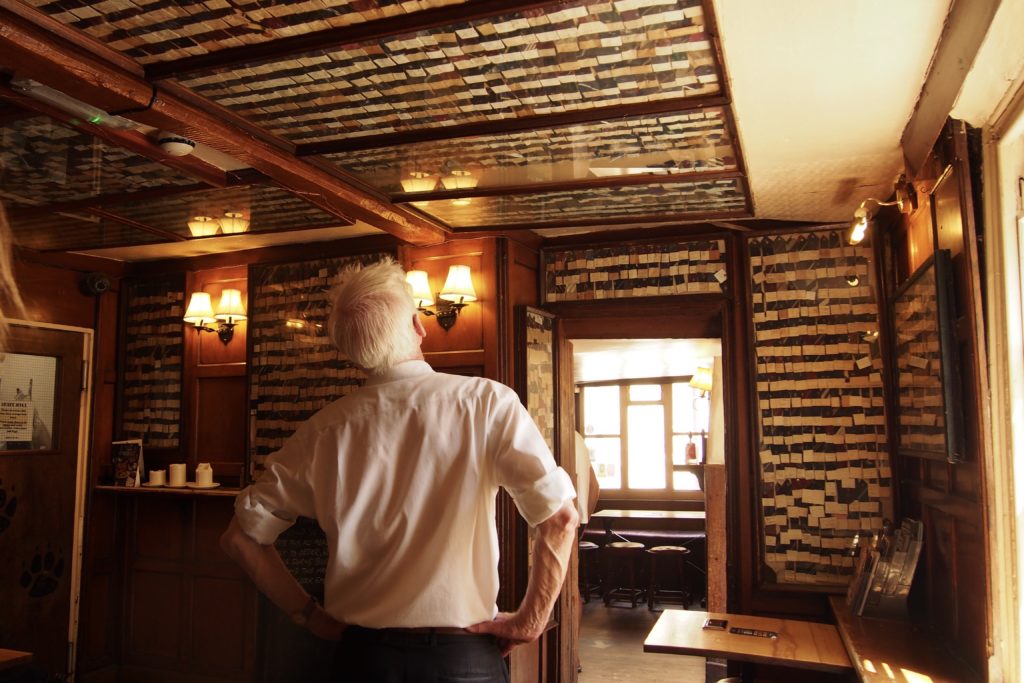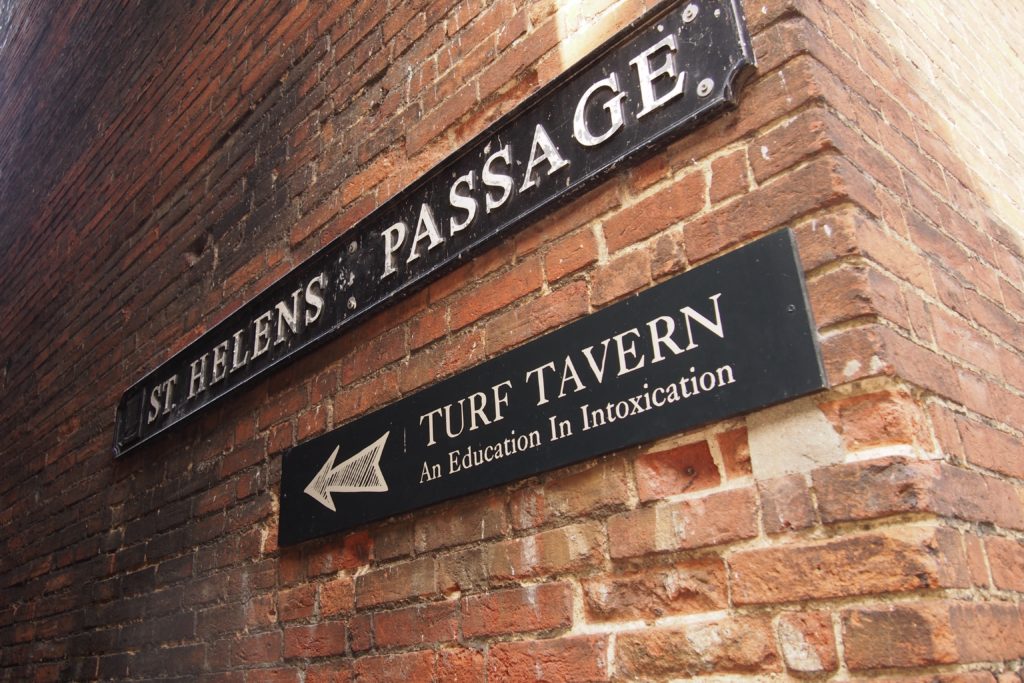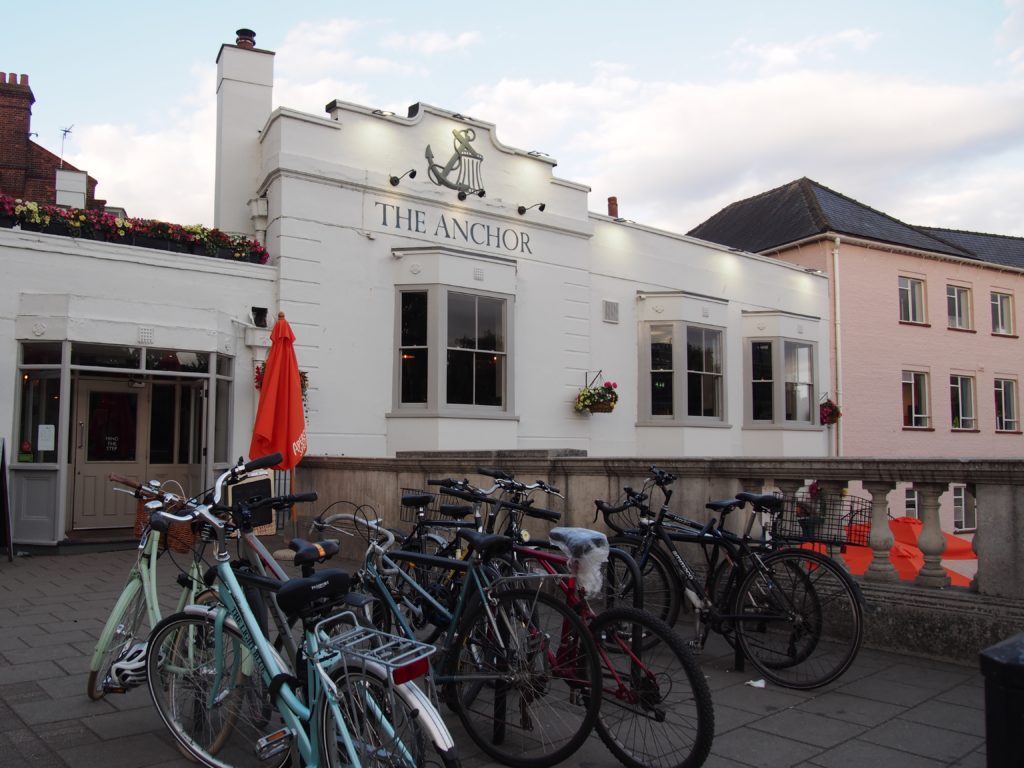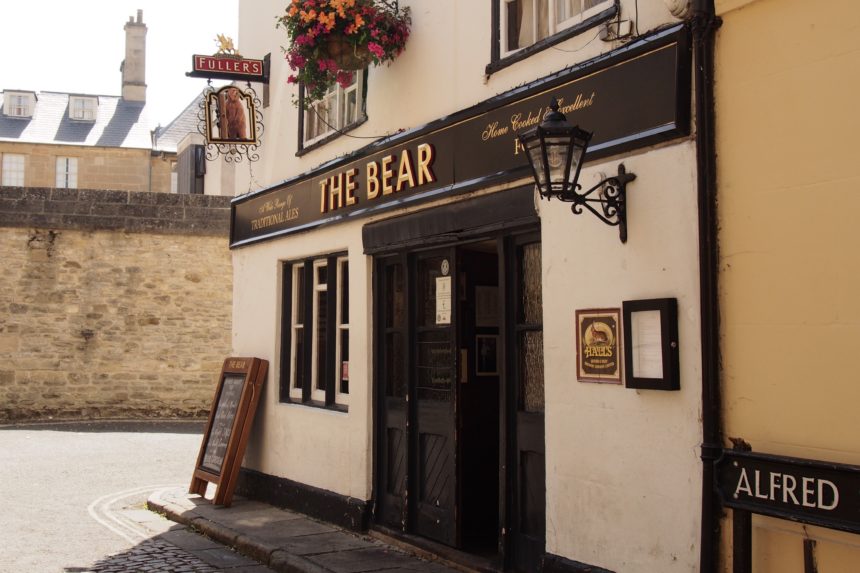The phrase “British heritage” immediately conjures visions of Stonehenge, Big Ben, and the Royal family. So intrinsic are they to the heritage and identity of the nation, that their image alone can serve as a representation of the whole United Kingdom. But one needn’t drive out to Salisbury or score an audience with the Queen in order to soak in one of the most fundamental aspects of British culture. To experience one of the oldest and most quintessentially British experiences, one need go no further than the local pub.
Pub history, pint-sized
Roman “tabernae” were the first drinking establishments on British soil, which served the occupying force’s favoured tipple: wine. But this foreign import failed to catch on with the wider public; most of the native population preferred ale, which would be brewed at home by the family matriarch. It wasn’t until the Middle Ages that this role was taken over by one person in a local community, who would brew ale in greater volume and sell the excess to their neighbours out of their front rooms. This system was the forerunner of the “public houses” – or pubs – that we know and love today.
What’s remarkable about the history of the pub is how its development as a British institution reflects the history of the nation at large. Beer takes a long time to brew, so pubs only crop up in established settlements. Each pub becomes a snapshot of the social and political climate of its local community, as well as a reflection of wider national trends. For instance, if a pub was located near a church, it might take on a biblical name, such as The Angel or The Six Bells. However, after King Henry VIII broke with the Catholic Church to establish The Church of England, pubs were more likely to be named with a monarchical slant, such as The Kings Head or The Rose and Crown.
When Britain entered the industrial era, pubs became a place for the working class to rest and refuel. The technological advancements of this age enabled the mass production of beer for the first time. Commercial beers became a reflections of industrialisation itself, and the inflated quantities brewed en masse were necessary to sake the thirst of the new working class, who relied on beer to bolster their caloric intake while labouring in factories and shipyards. Pubs themselves served as social hubs, where workers could spend their precious free time. The practice of ‘buying rounds’ is evidence of the social importance of pubs. Rather than each person purchasing their own drink, each member of a group takes turns buying drinks for all, reinforcing the idea that a pub is a place to spend time with old friends, as well as make a few new ones.

Closing time: the plight of the modern pub
The Covid-19 pandemic naturally dealt a death blow to many pubs across the country. But it only accelerated what was already a downward trend. According to BBC News, over 7,000 pubs have closed their doors since 2012. These closures can be attributed to numerous causes, including rising costs, greater competition and decreased custom from younger generations. To lose a local pub is to lose a piece of living public history. Not only do they capture a local community’s history, they still serve an active social function. While this crisis is affecting communities of every sizes, a pub’s absence is more keenly felt in rural areas, where people have precious few communal spaces for socialising.
While pubs are undoubtedly a staple of British culture and heritage, safeguarding and interpreting them as such can prove difficult. Due to their intrinsic social elements, standard means for heritage preservation, such as listing sites and selling tickets, is ultimately antithetical to all that pubs are and do. While they contain tangible elements, pubs remain deeply intwined with an intangible experience, which can be difficult to replicate for those unfamiliar with the nuanced social role of the pub.

One possible way of capturing this for a tourist market is through historical pub tours. Heritage Pub Tours, a new tour business in Cambridge, is dedicated to imparting the value and history of the city’s local pubs by guiding tourists through a typical British pub experience. Co-founder Josh Bland explains: “Our Classic Pub Tour takes customers for a drink at three of the most historical pubs in Cambridge, where they will learn about the history of the pub and the city they’re in. However, they don’t enter the pubs as tourists, but as locals. We keep groups small, so that we can all sit around one table. That way, I can take on the role of a fellow pub-goer sharing stories, rather than a tour guide listing off facts.”
Bland, who is currently writing his PhD in Heritage Studies at the University of Cambridge, said preserving the atmosphere of the pubs was paramount when designing the tour. “We want to demonstrate to tourists how the story of Cambridge can be told through its pubs, and for those who are visiting from outside the country, we want to highlight the vital cultural role that pubs play. But this can be accomplished while ensuring everyone taking part feels like they’re on a night out with friends, rather than just observing a historical landmark from the side lines. In that way, I hope we’re helping tourists encounter pubs as I – and many other Brits – have throughout my life.”

Heritage Pub Tours will primarily operate in Cambridge, but Bland hopes to expand the company to other cities. “There are so many pubs in cities across the country whose heritage value is overlooked. I grew up in and around Birmingham, and the city’s pub have been some of the defining institutions of my life, providing the backdrop for some of my happiest memories and most important formative experiences. With thousands of pubs shutting their doors, it’s more important than ever to make sure they’re appropriately recognised, by tourists and locals alike – and more people have the opportunity to relate to their city, their loved ones and pub culture itself through a special pub.”
XXXXXXXXXXXXXXXXX